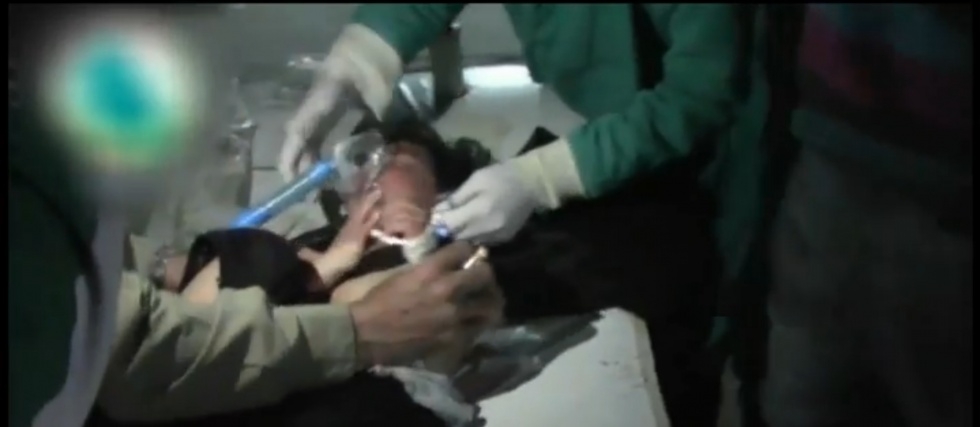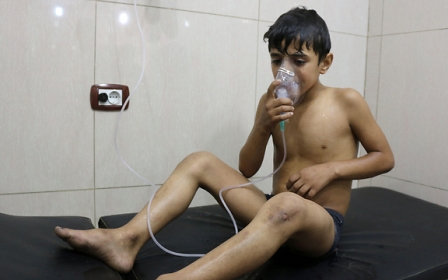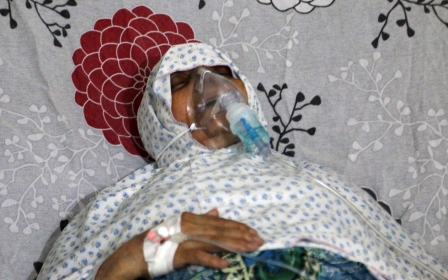EU sanctions four Syrian army officials over chemical attacks

The European Union imposed sanctions on Monday against four senior Syrian military officials accused of using chemical weapons on civilians, after Russia and China blocked similar measures at the United Nations.
The move marks the first time the EU has blacklisted Syrian officials for the government's use of chlorine gas during the six-year conflict, although it previously accused one commander, Major General Tahir Hamid Khalil, of deploying chemical weapons as part of repressive tactics in 2013.
It has also targeted Syrian companies accused of manufacturing chemical weapons.
The four military officials, who the EU will name on Tuesday, will be banned from travelling to the European Union and will be unable to access any assets in the bloc or its banks, according to a statement by the European Union.
The EU measures take the number of people under its Syrian sanctions to 239, as well as 67 companies.
EU sanctions also include an oil embargo, restrictions on investments, a freeze of Syrian central bank assets held in the EU and a ban on exports of equipment and technology that could be used against civilians.
An investigation by the United Nations and the Organisation for the Prohibition of Chemical Weapons (OPCW) found Syrian government forces were responsible for three chlorine gas attacks and that Islamic State militants had used mustard gas, but Russians said that the results were inconclusive.
In February, Russia and China blocked a bid by the United States, Britain and France at the UN to impose sanctions over the use of chemical weapons in the Syrian conflict, saying it would harm peace talks.
The United States had already blacklisted 18 officials in January over the chemical weapons accusations.
Chlorine use as a weapon is banned under the Chemical Weapons Convention, which Syria joined in 2013. If inhaled, chlorine gas can kill by burning the lungs or drowning victims in the fluids that the body produces following an attack.
The government of Syrian President Bashar al-Assad, who has been under EU sanctions since May 2011, has denied its forces used chemical weapons.
New MEE newsletter: Jerusalem Dispatch
Sign up to get the latest insights and analysis on Israel-Palestine, alongside Turkey Unpacked and other MEE newsletters
Middle East Eye delivers independent and unrivalled coverage and analysis of the Middle East, North Africa and beyond. To learn more about republishing this content and the associated fees, please fill out this form. More about MEE can be found here.




